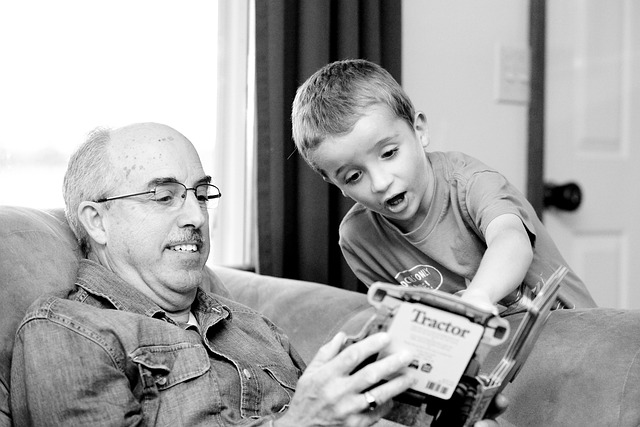Oregon's court system offers a structured approach to grandparent rights, comprising trial courts and specialized courts like Multnomah County Juvenile Court and Oregon Tax Court. Navigating this hierarchy is essential for advocates seeking visitation or custody. Grandparents can petition the court based on the best interests of the child, with decisions considering family dynamics, parental health, and emotional development. The process begins with filing a petition, followed by legal proceedings where evidence and arguments are presented. Resolution options include trial or mediation. Grandparents may represent themselves (pro se), benefiting from local legal aid services. Court decisions prioritize the child's well-being while recognizing grandparent-grandchild relationships, potentially granting custody or specific visitation rights.
“Oregon’s court system offers a comprehensive framework for resolving family matters, including those involving grandparent rights. This legal overview aims to guide grandparents navigating the intricate processes in pursuit of their rights. From understanding the state’s court structure to initiating cases and exploring trial versus mediation options, this article covers crucial aspects.
Learn about your legal standing, the steps to file a petition, and the benefits of representing yourself as a pro se grandparent. Discover key considerations and potential outcomes, empowering you with knowledge in this important journey.”
- Understanding Oregon's Court System: An Overview
- Grandparent Rights: Legal Framework in Oregon
- Initiating a Case: Steps to File a Petition
- Types of Court Proceedings: Trial vs. Mediation
- Representing Yourself: Pro Se Options for Grandparents
- Key Considerations and Common Outcomes
Understanding Oregon's Court System: An Overview

Oregon’s court system is structured to ensure a fair and efficient administration of justice. At the core are trial courts, divided into several districts, each with its own circuit court handling a variety of cases, including family law, criminal, and civil matters. Above these are the Oregon Supreme Court and the Oregon Court of Appeals, which review decisions made at the trial level. Understanding this hierarchy is crucial when navigating the court process, especially for individuals seeking to protect their grandparent rights.
The intricate web of Oregon’s judicial system includes specialized courts like the Multnomah County Juvenile Court, dedicated to cases involving minors, and the Oregon Tax Court for tax-related disputes. This diverse system aims to accommodate a wide range of legal issues, from minor traffic infractions to complex family situations, including grandparent custody battles. Knowing which court handles specific matters is essential for anyone involved in the legal process, particularly when advocating for one’s rights as a grandparent.
Grandparent Rights: Legal Framework in Oregon

In Oregon, grandparent rights are governed by a well-established legal framework within the state’s court process. These rights allow grandparents to seek significant involvement in their grandchild’s life, even if they are not the child’s parents. The Oregon Court System provides a structured pathway for grandparents to petition for visitation, custody, or both, based on the best interests of the child. Key statutes and case law guide judges’ decisions, ensuring a balanced approach that considers both the rights of parents and the well-being of grandchildren.
Grandparent rights cases often involve complex family dynamics. Oregon courts evaluate factors such as the quality of the grandparent-grandchild relationship, the parent’s mental and physical health, stability of home environments, and the potential impact on the child’s emotional and psychological development. This comprehensive approach allows for decisions that prioritize the grandchild’s interests while respecting the parental role. Understanding these legal frameworks is crucial for grandparents navigating the court process to secure their rights and for parents preparing to defend them.
Initiating a Case: Steps to File a Petition

Initiating a legal battle for court process grandparent rights involves a series of precise steps. In Oregon, the journey begins with filing a petition, which is a formal written request to the court outlining the nature of the case. This document should clearly state the reason for the lawsuit, whether it’s regarding custody, visitation, or any other related matter. The petition must be prepared and submitted according to the state’s guidelines, ensuring all legal requirements are met.
Once the petition is filed, the court will review it to ensure its completeness and legal validity. This initial stage is crucial as it sets the framework for the entire court process. If the petition meets the criteria, the court will issue a summons, officially notifying the respondent (the person being sued) of the pending case. This marks the beginning of the legal proceedings, where both parties have opportunities to present their cases and argue their rights, especially regarding grandparent rights.
Types of Court Proceedings: Trial vs. Mediation

In Oregon, when it comes to resolving legal disputes related to court process grandparent rights, the state offers two primary avenues: trial and mediation. Both methods have distinct characteristics that can significantly impact the outcome of a case. A trial involves presenting evidence and arguments before a judge or jury, leading to a formal decision. This traditional approach can be time-consuming and often more contentious, as it relies on the court’s interpretation of the law and the facts presented by both parties.
In contrast, mediation offers a more collaborative process where a neutral third party, known as a mediator, assists the disputing parties in reaching an agreement. Unlike a trial, mediation encourages open communication and mutual understanding, potentially leading to a more mutually acceptable outcome regarding court process grandparent rights. This alternative approach can be particularly beneficial when families seek a less adversarial resolution while respecting each other’s interests and well-being.
Representing Yourself: Pro Se Options for Grandparents

In Oregon, grandparents seeking to represent themselves in court proceedings related to their grandchildren’s custody or visitation can opt for a pro se approach. This means they navigate the legal system without a lawyer, which requires meticulous understanding of state laws and regulations regarding court process grandparent rights. Pro se representation is possible in certain family law cases, offering grandparents the opportunity to advocate for their rights directly.
While this path offers independence, it also demands thorough preparation. Grandparents should educate themselves on legal terminology, procedures, and evidence requirements specific to Oregon’s court process. Local legal aid organizations and pro bono services can provide valuable resources, guidance, and support to help ensure a fair outcome in these emotional and complex cases involving grandparent rights.
Key Considerations and Common Outcomes

When navigating the Oregon court process regarding grandparent rights, several key considerations come into play. The primary focus is often on the best interests of the child, with courts carefully evaluating each case’s unique circumstances. Factors such as the existing relationship between grandparents and the child, stability in the current living environment, and the potential impact of granting or denying visitation rights are critically examined. Additionally, the court will consider parental decisions regarding grandparent access unless there is a compelling reason to intervene.
Common outcomes of these cases can vary widely based on the specific facts presented. Grandparents may succeed in gaining partial or full custody rights, allowing them regular visitation with their grandchildren. Conversely, they might also be granted specific visitation privileges, like weekend visits or holidays, while primary guardianship remains with the parents. In some instances, courts may impose conditions or schedules to ensure a healthy balance between family relationships and the child’s well-being. These outcomes reflect the court’s commitment to striking a delicate equilibrium in cases involving grandparent rights.














